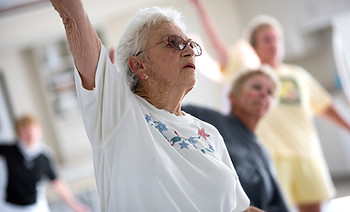

Research Projects
Since 2021, doctoral students have engaged Wisdom Wellness program participants in several quality improvement projects, conducted research, and disseminated their research through publications, public academic sessions, new programming, and conferences. The research supports the longitudinal care presence delivered by Wisdom Wellness volunteers supporting the self-care management goals of the elders participating in our programs. For more information on any research and learning discoveries at Wisdom Wellness, please contact us at infor@wisdomwellnessmn.org.
Health and Wellness Coaching for Chronic Disease Management (2021, H. Bateman)
Findings suggest that health coaching and education improve hypertension control as evidenced by a mean population improvement of 12 mm Hg

Implementation of Self-Measured Blood Pressure Monitoring Protocol in an Urban Underserved Population (2022, E.Wilson)
Over twelve weeks, ninety percent of the participating residents recorded blood pressure readings. Findings indicate blood pressure improvements were due to an increase in residents' self-efficacy through weekly monitoring of their blood pressures using their electronic blood pressure machines or screening at the Wisdom Wellness Clinic and the individualized health coaching using motivational interviewing.

Self-Management of Type 2 Diabetes Mellitus for Underserved Population in a Multicultural Community (2023, T. Gbehan)
Findings suggest that culturally sensitive education and coaching encouraged participants to take proactive steps to manage their T2DM.

A Holistic Approach to Health Literacy in Multicultural Communities (2022, N.Forchia)
This quality improvement project demonstrated that consistent in-person healthcare volunteer connections, using modified health literacy level educational materials, delivered improvement in the confidence and self-efficacy levels for self-care health knowledge in the aggregate of participating elders.

Implementing an Education Program to Increase Advance Care Planning Awareness Among the Native American Population (2023, S. Yangzom)
The findings from the data analysis suggested that integrating health literacy and culturally appropriate health education significantly impacted participants' enrollments and Advanced Care Plan knowledge improvement from 33.33% to 66.67%.

Reframing Medication Adherence: Addressing Personal and Healthcare Systems Barriers to Improve Medication Self-Efficacy in Community-Dwelling Older Adults (2024, M. Trudgeon)
A self-efficacy survey (SEAMS) was given pre- and post-intervention and compared. A barriers checklist was developed to help identify potential personal and healthcare systems barriers. The SLUMS test was also performed to screen for cognitive deficits. Action plans with SMART goals were developed with each resident based on responses to the pre-survey and barriers checklist. Individualized interventions included medication box fills, medication delivery program, and interactive group workshops.
Self-efficacy was a questionable measure for medication adherence in this study population due to identified cognitive impairment.
